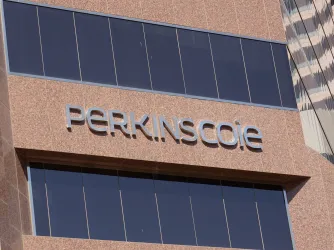Table of Contents
FIRE v. ‘Hosty’
As our press release today attests, FIRE, along with the Student Press Law Center, is leading the charge against a recent and very misguided court decision called Hosty v. Carter. FIRE has been involved in this case for quite some time, which initially received a very favorable ruling from the Seventh Circuit. Unfortunately, the Seventh Circuit reversed itself en banc earlier this summer in a ruling that should gravely concern all those who care about student rights. The plaintiffs’ attorney filed a certiorari petition Friday—asking the Supreme Court to take the case—and FIRE is now assembling a coalition of like-minded organizations and has summarized its objections to the Hosty decision in a new policy statement. Here is the introduction:
The U.S. Court of Appeals for the Seventh Circuit’s en banc opinion in Hosty v. Carter, No. 01-4155 (7th Cir. June 20, 2005), is a poorly conceived opinion that, if upheld, will do serious harm to freedom of speech on campus far beyond the realm of student media.
The Court ruled that a dean of students who exercised prior restraint over a student newspaper—unequivocally because of its content—is entitled to immunity from liability. It also decided that the logic of Hazelwood v. Kuhlmeier—an opinion that has been used to drastically curtail the rights of high school students and teachers—applies to the college media. Applying this decision in the college environment drastically reduces the rights of the college media, which have traditionally enjoyed rights more comparable to their counterparts on CNN or in the New York Times than to their counterparts in high school.
While FIRE opposes the holding of Hosty—that a dean of students was entitled to immunity despite engaging in a brazen and intentional act of censorship—the real damage of the Hosty opinion lies in the fact that it blurs the critical distinction established in Supreme Court precedent between funding from mandatory “student fees” and direct payments from the university. The Seventh Circuit’s finding in Hosty would open up virtually any student publication or other student group that receives any benefit from the university to the possibility of heavy-handed content-based regulation by university administrators, thus reviving the Supreme Court-settled issue of whether students can be made to pay fees that go to support expressive activities with which they disagree.
A guiding principle in First Amendment law is that, where speech is concerned, the law must be exceedingly clear so citizens need not have to guess if they can be punished for their speech. The threat of vague, confusing or unclear decisions is that speech will be chilled since only the bravest will risk punishment to speak their minds. After Hosty, student newspapers and groups that once could be confident in their free speech rights will now have to guess at whether their speech is free or subject to even the crudest forms of censorship. At the same time, colleges will be left to guess if they can now be held liable in lawsuits brought against the formerly clearly independent student media. Murkiness in free speech jurisprudence has real consequences, and the Hosty opinion will be seized upon by administrators tired of being criticized, by students looking for universities with deep pockets to compensate them for being offended by the student press, by faculty members who wish to make the student media “more sensitive” or to eliminate controversial reporters or columnists, and by outside forces who will demand the student media cover or not cover any of a host of issues or stories.
And make no mistake about it, college administrators are already relying on the logic of Hazelwood to regulate speech outside of the student media context. The Seventh Circuit’s decision in Hosty will accelerate this trend and provide justification enough for administrators to intervene to “regulate” speech even in instances where the speech had once been unquestionably protected. Far smaller loopholes, ambiguities, and exceptions to free speech are abused on a daily basis on the contemporary college campus, and the Hosty opinion provides would-be censors with an unprecedented opportunity to punish or stifle expression they dislike. In FIRE’s experience, where such opportunities exist, abuses will, with virtual certainty, quickly follow.
FIRE has joined with and will continue to collaborate with the Student Press Law Center (SPLC) in opposing this potentially disastrous opinion. The parties intend to appeal this case to the Supreme Court, and FIRE will be supporting this effort through public awareness and by helping to build a broad coalition to petition the Supreme Court to take the case. FIRE hopes that the Supreme Court will restore some clarity and sense to the law regarding student’s rights.
The purpose of this statement is to provide a preliminary overview of some of the major problems presented by the decision—a full examination of all the potential harms and legal problems with the decision would be far longer. For a more in-depth look into the legal aspects of this case, FIRE recommends the amicus brief that SPLC, FIRE and two dozen organizations filed on Hosty’s behalf. FIRE is determined to forge an even larger coalition to bring this case before the Supreme Court of the United States. Groups interested in joining the coalition should contact FIRE at hosty@thefire.org.
Read the rest of the policy statement here.
Recent Articles
FIRE’s award-winning Newsdesk covers the free speech news you need to stay informed.

FIRE POLL: Only 1/4 of Americans support deporting foreigners for pro-Palestinian views

Harvard’s resistance to Trump is a model for US universities

Sixty-one media organizations and press freedom advocates contest Perkins Coie executive order — First Amendment News 466
